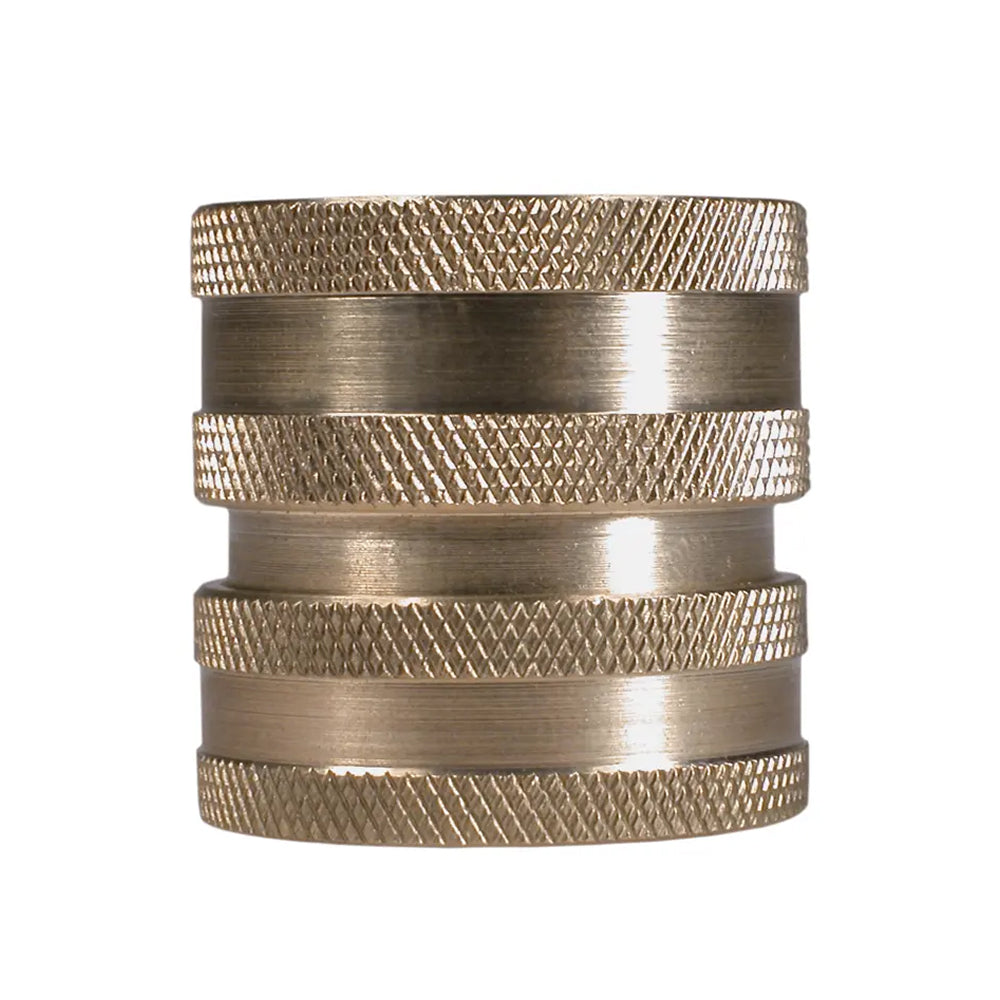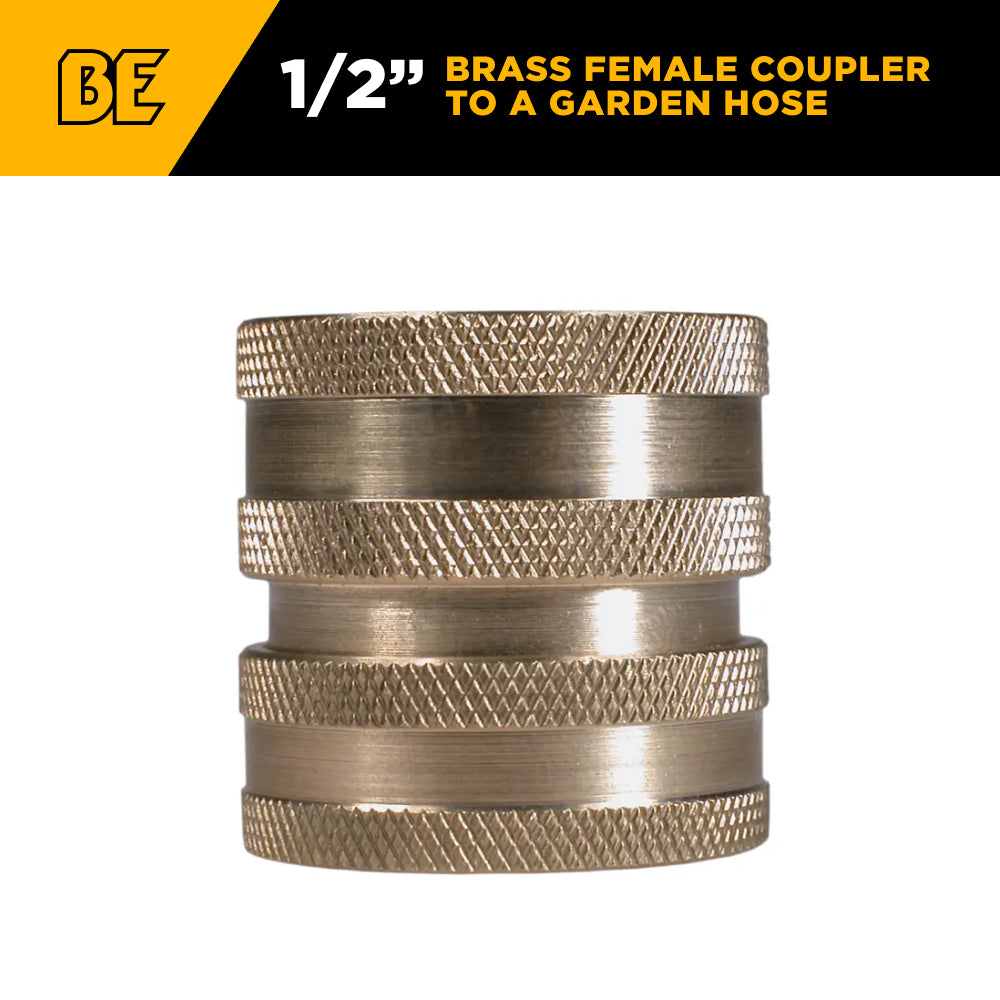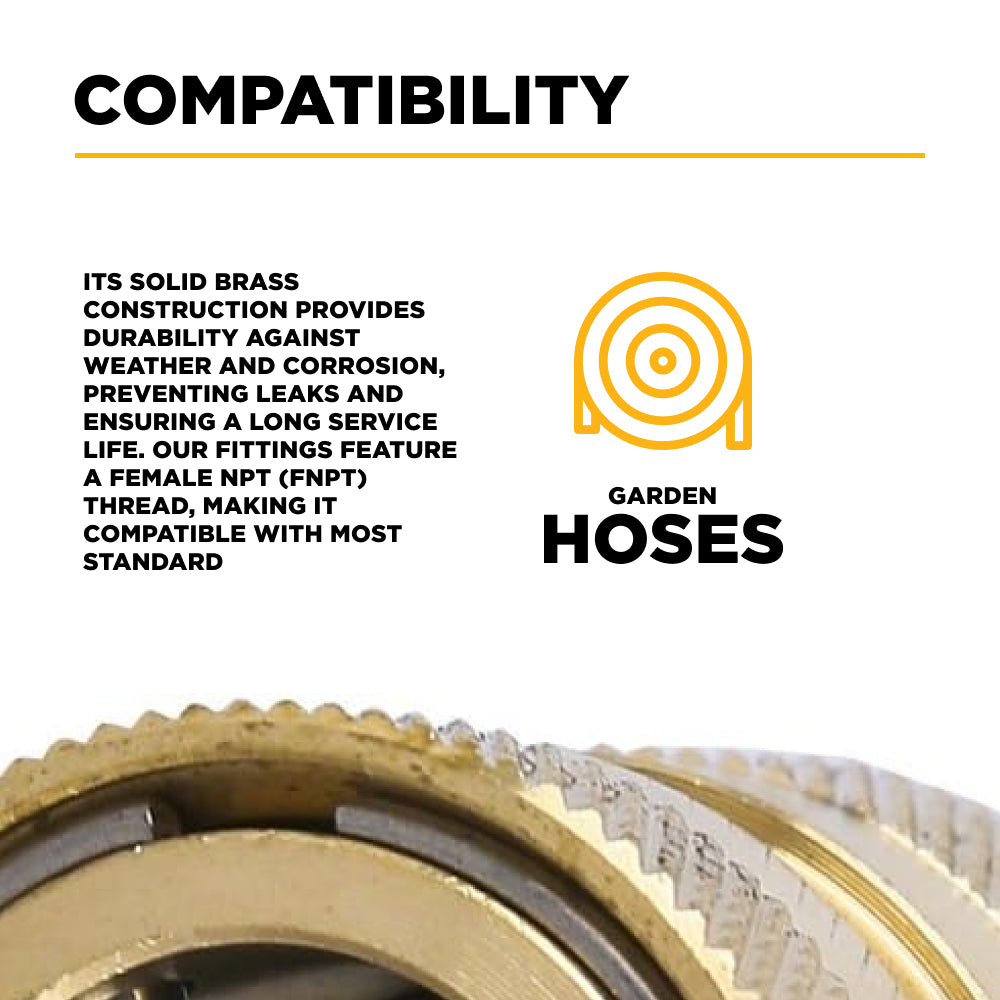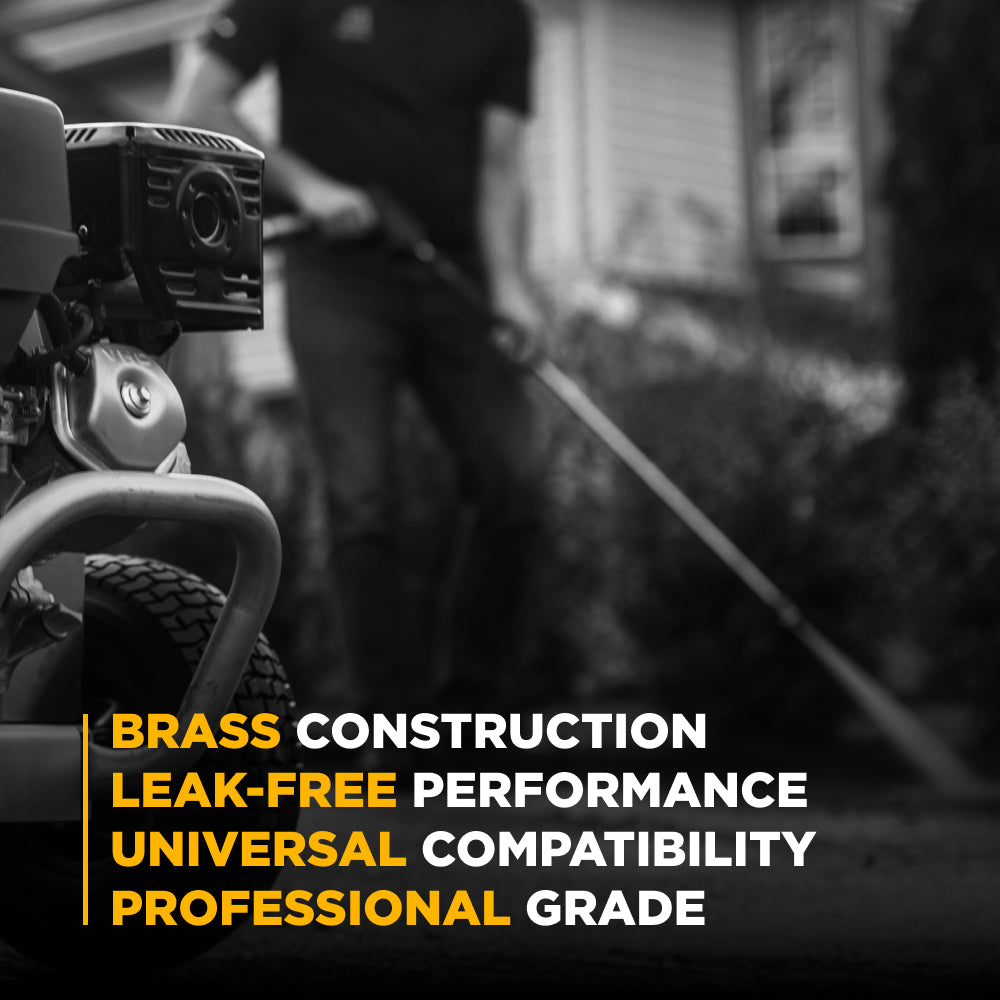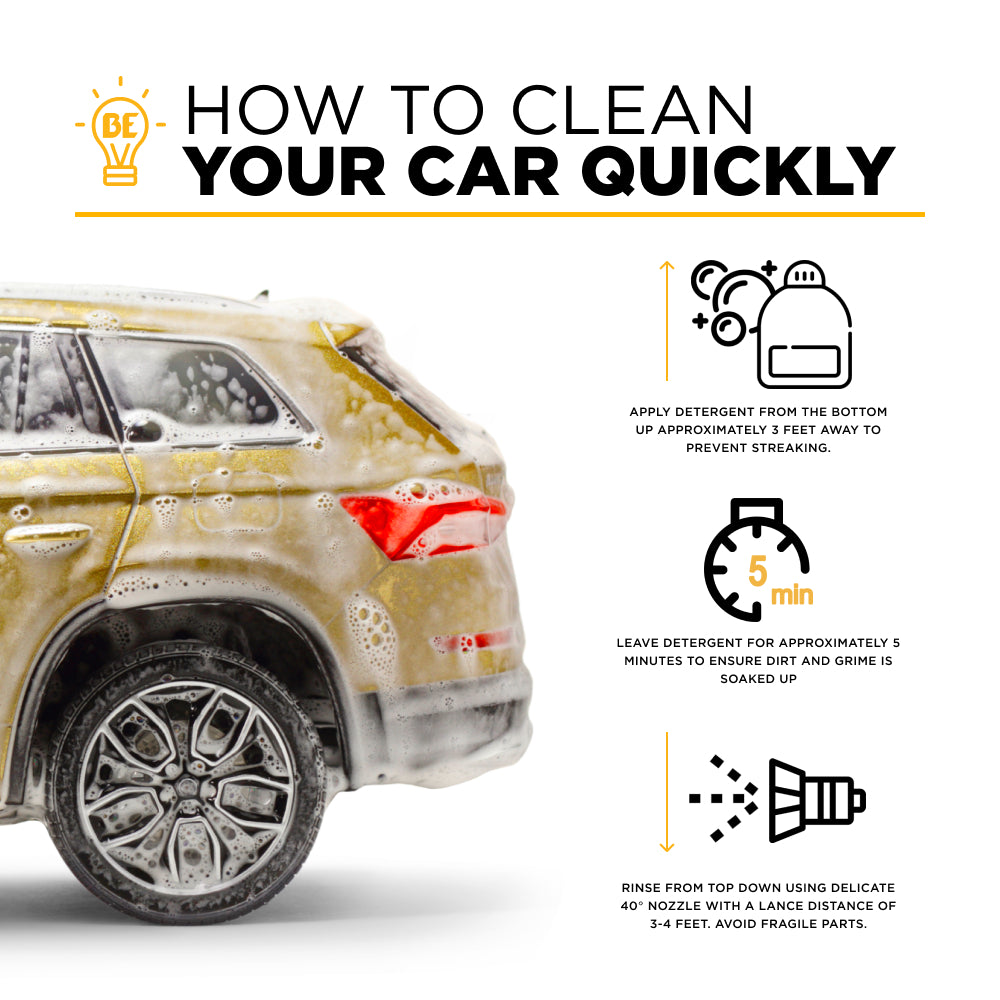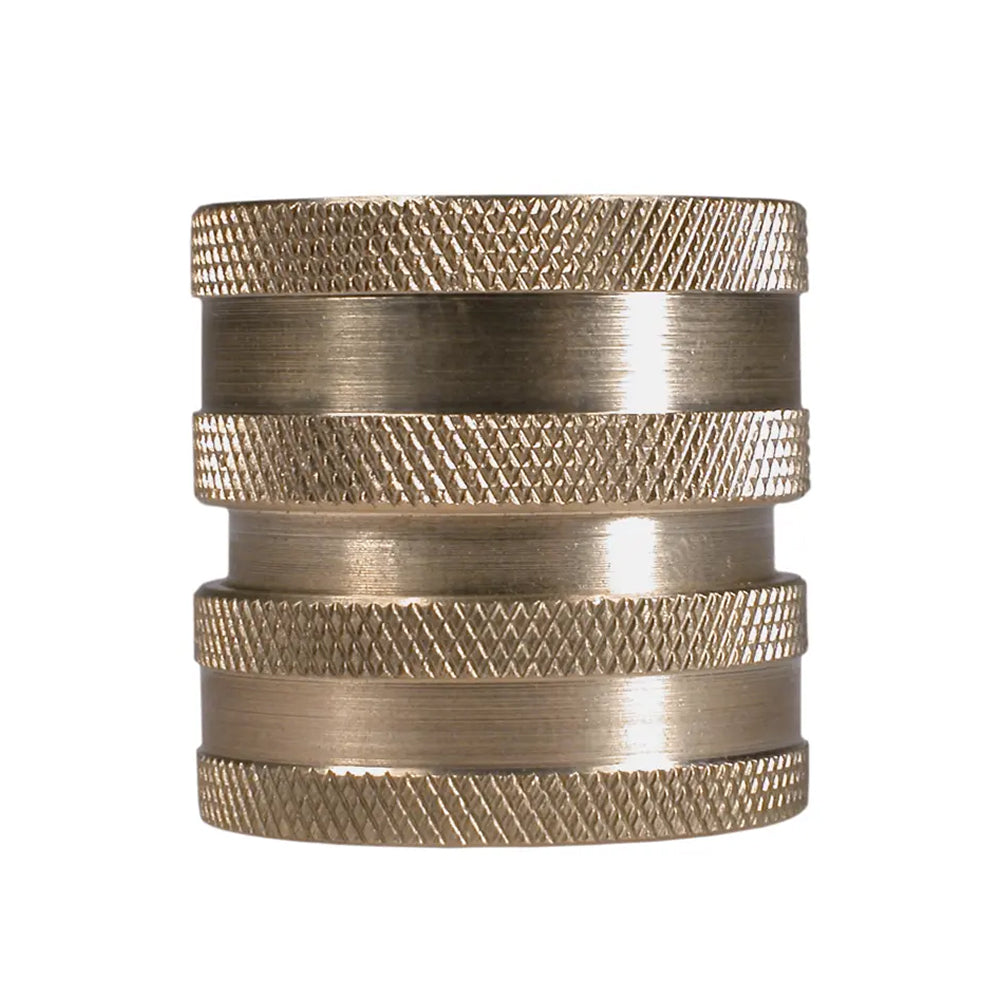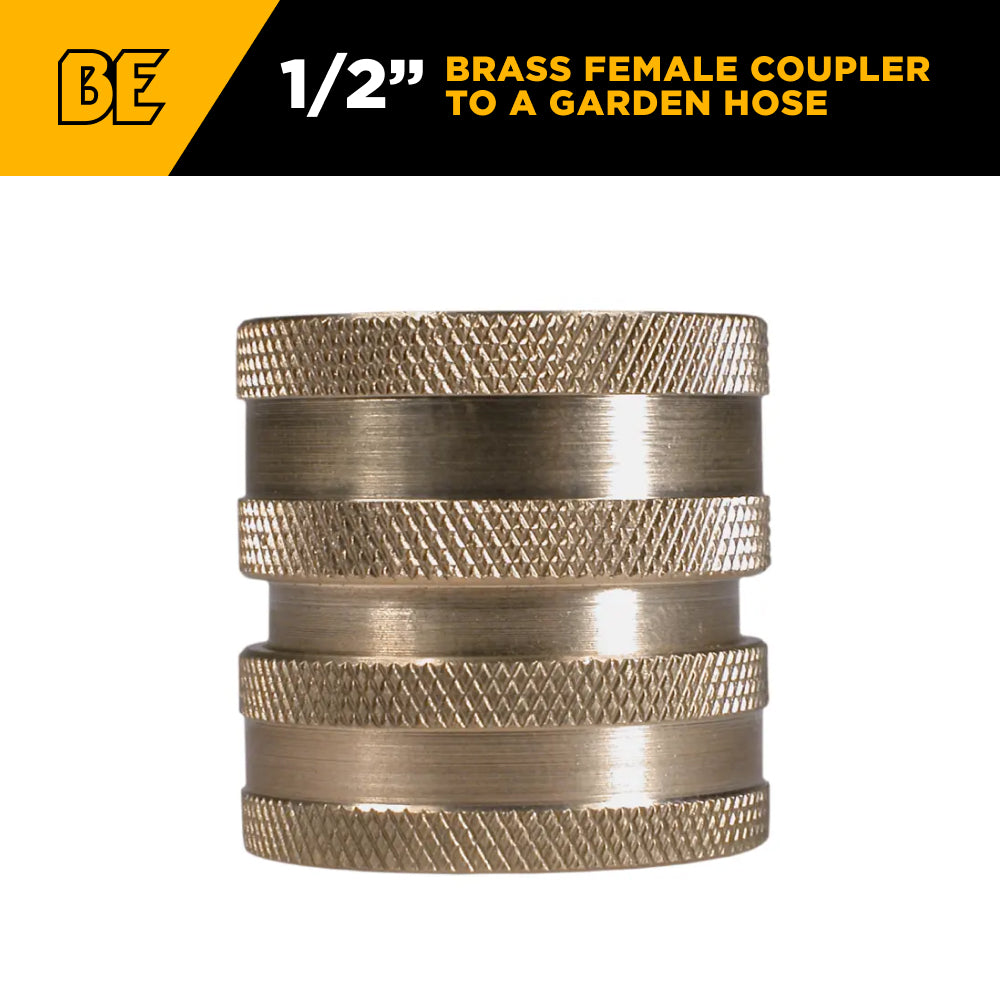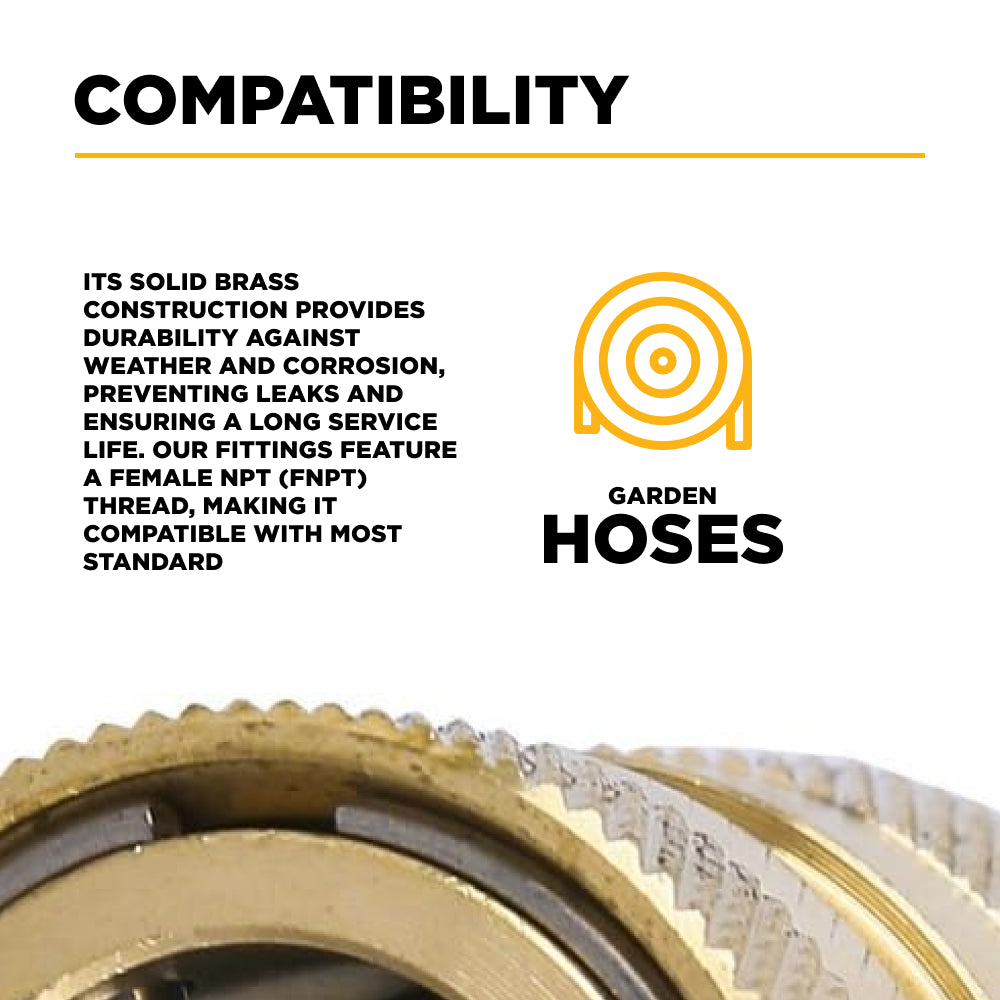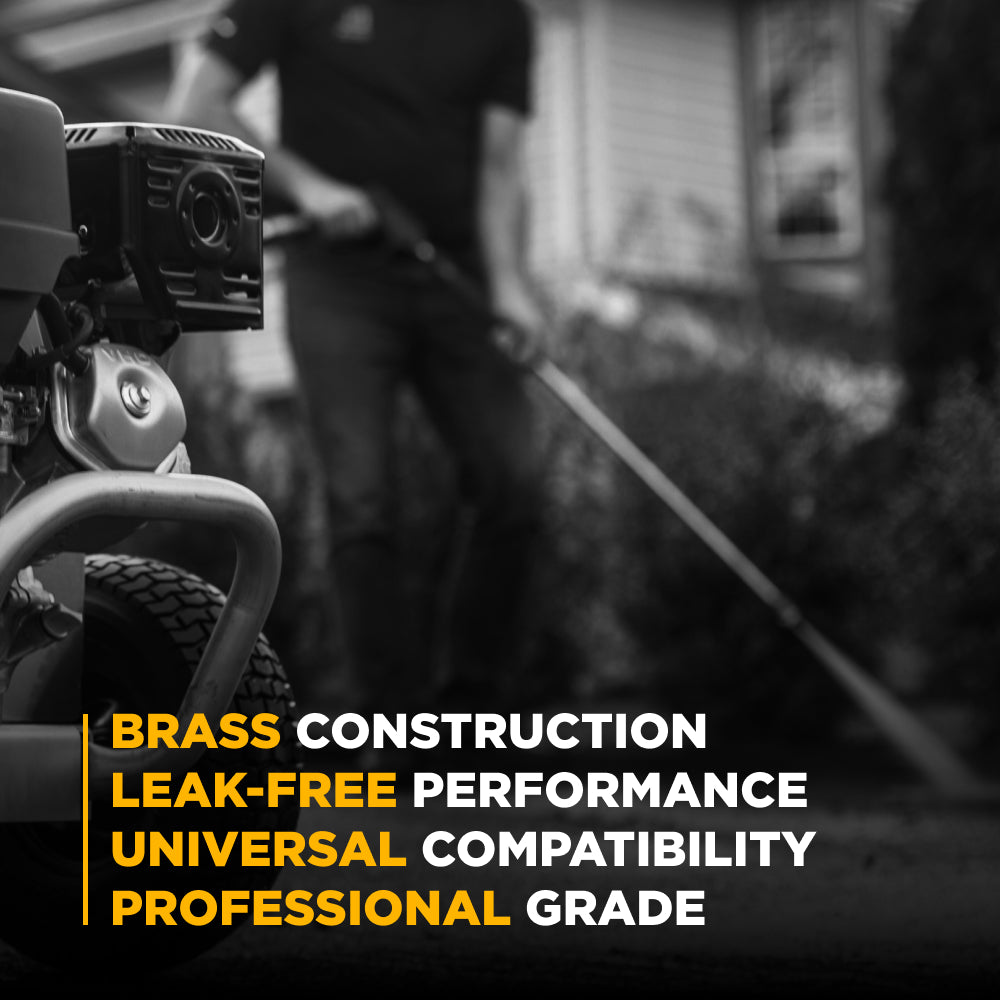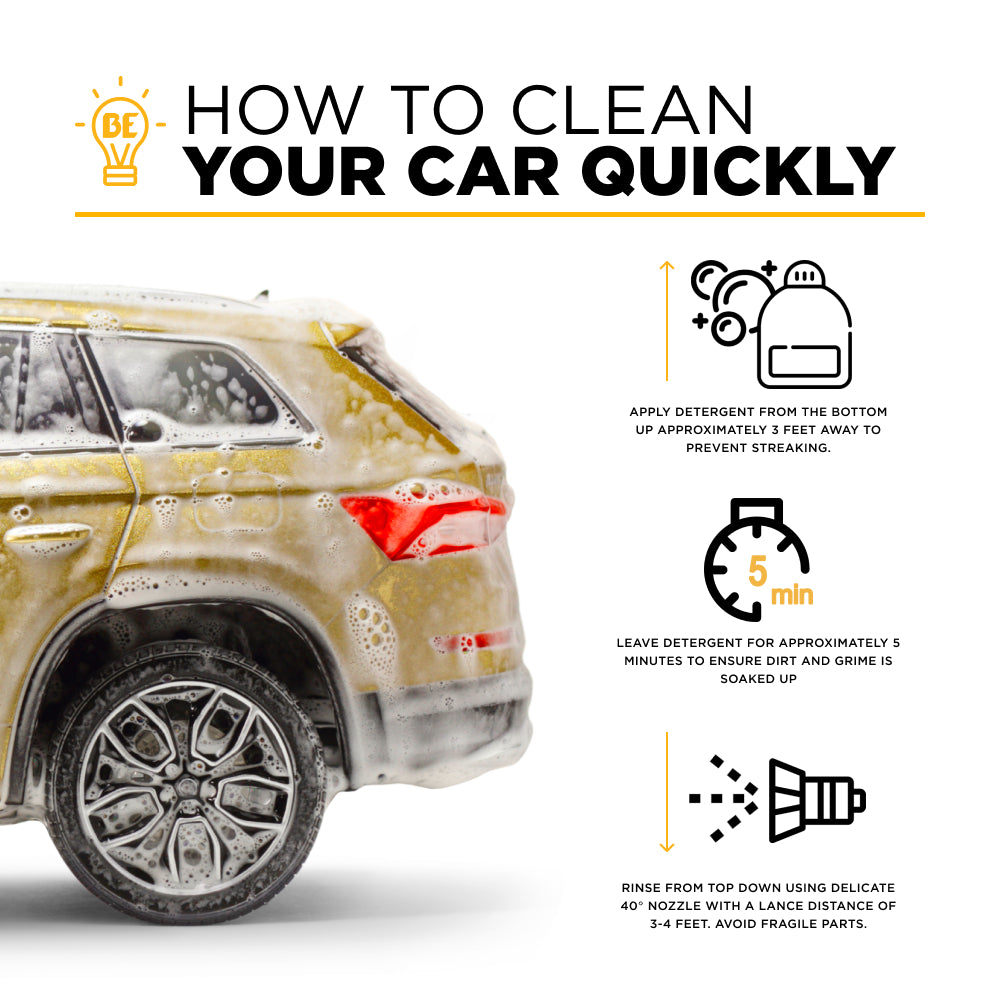PRODUCT
DESCRIPTION
Quick-Connect Convenience for Fast, Reliable Pump Connections
The Brass 3/4" Garden Hose Thread to 1/2" Coupler is a durable and easy-to-use fitting designed to convert your standard garden hose into a quick-connect system. Built from solid brass for long-lasting strength and corrosion resistance, this adapter threads directly onto the end of your garden hose, allowing you to quickly attach or detach from your pump setup without tools or leaks.
Engineered for use with part #85.300.137, this coupler is the perfect companion to create a fast, reliable connection between your hose and pump. It simplifies setup and breakdown, saving time while ensuring a secure, watertight seal—ideal for both residential and commercial pressure washer systems.
Key Features
-
Quick-Connect Functionality:
Converts the end of your garden hose into a quick-connect fitting for effortless setup with your pump. -
Compatible with 85.300.137:
Specifically designed to pair with this fitting for a complete hose-to-pump connection system. -
Durable Brass Construction:
Made from solid brass for superior corrosion resistance, durability, and long-term reliability. -
Leak-Free Design:
Precision-machined threads and coupling ensure a tight, reliable seal under water pressure. -
Universal Garden Hose Fit:
Works with standard 3/4" garden hose threads, making it compatible with most hose and pump systems.
Specifications
-
Connection: 3/4" FGHT (Female Garden Hose Thread) x 1/2" Coupler
-
Material: Solid Brass
-
Use Case: Creates a quick-connect link between your garden hose and pump system
-
Compatibility: Designed for use with 85.300.137
Built for Durability and Performance
Constructed from solid brass, this adapter offers excellent resistance to rust and corrosion, ensuring reliable performance even after repeated exposure to water and outdoor conditions. The precision threading provides a secure fit that prevents leaks and extends the life of your equipment.
Easy, Time-Saving Connection
No more struggling with threaded fittings every time you connect or disconnect your hose. The quick-connect design makes switching between accessories or pumps effortless—simply snap in or release in seconds. It’s a professional-grade solution that’s as convenient for homeowners as it is for contractors.
The Brass 3/4" Garden Hose Thread to 1/2" Coupler turns your standard garden hose into a quick-connect system for fast, leak-free setup. Built from durable brass and designed for use with 85.300.137, this fitting ensures strong, corrosion-resistant performance and a secure seal every time. Perfect for anyone looking to streamline their garden hose-to-pump connection with professional reliability.
Frequently Asked Questions about Pressure Washers
How to store a pressure washer?
To ensure the durability of your heavy duty pressure washer:
- Empty the gas tank to prevent fuel from degrading or clogging the engine.
- Empty the pump and hoses of any remaining water.
- Perform necessary maintenance before storage.
- Store in a dry area.
- Cover.
What is a pressure washer?
A power washer is a cleaning machine that uses a gasoline engine to power a high pressure water pump and nozzle. It’s used to clean driveways, decks, vehicles, outdoor furniture and more by spraying water at high PSI to remove dirt, grime, mold and other debris.Many models also come with a detergent tank for added cleaning power.
How does a power washer work?
A power washer works by drawing water from a connected hose and pumping it through a high pressure nozzle. The gas engine powers the pump which pressurizes the water and then expels it through the nozzle at high speed to clean the surface. The water pressure is measured in PSI (pounds per square inch) and the flow rate is measured in GPM (gallons per minute).Many models also feature adjustable water pressure settings to cater to different cleaning needs. BE makes pressure washing easy with models available for light jobs and heavy duty commercial cleaning projects.
Gas vs Electric power washers?
The main difference is that a gas pressure washer, known for its cleaning power, is powered by a gasoline engine, making it more powerful and portable, while an electric pressure washer is powered by electricity and is generally quieter and lighter.
Gas pressure washers are for heavy duty and large areas due to their durability, whereas electric pressure washers are for smaller jobs.
Your BE electric pressure washer is perfect for smaller jobs and built for portability, and we offer a wide range of electric models. Included with our electric models is a long extension cord for use anywhere around your house.
What to consider?
When choosing a gas pressure washer consider:
- Pressure (PSI): More PSI means more cleaning power but also more potential for damaging delicate surfaces.
- Flow Rate (GPM): More GPM means faster cleaning as more water is dispensed.
- Engine Power: Bigger engines mean more durability and power.
- Portability: Weight, handle design and wheel size for easier to move.
- Nozzles: Multiple spray nozzles to adjust the spray pattern for different tasks.
- Adjustable Nozzle: Allows for fine-tuning the spray intensity and pattern for various cleaning needs.
How much pressure do I need for?
The required pressure (PSI) and cleaning power depend on the surface you’re cleaning:
- Light duty (car washing, outdoor furniture): 1,300-1,800 PSI.
- Medium duty (patios, fences, decks): 2,000-3,000 PSI.
- Heavy duty (driveways, brick walls, large equipment): 3,000+ PSI.
Many pressure washers come with adjustable pressure settings to handle different cleaning tasks effectively.
Can a pressure washing damage surfaces?
Yes, a power washer can damage surfaces if used incorrectly. High pressure water can strip paint, dent soft surfaces or even cause structural damage if the pressure is too high or the nozzle is held too close to the surface. Always use the right PSI for the material you’re cleaning and keep a safe distance from delicate surfaces.
To prevent damage, consider using a model with adjustable pressure settings.
How to maintain your pressure washer?
To ensure the durability and smooth operation of a pressure washer:
- Change the oil as per manufacturer’s instructions.
- Clean or replace the air filter to ensure good airflow.
- Inspect and clean the nozzle regularly to prevent clogs.
- Drain the gas tank if you’re storing the washer for a long time.
- Check the hoses for leaks or damage and replace them if needed.
- Follow regular maintenance requirements to keep the washer in optimal condition.
Can I use a pressure washer in cold weather and low water temperature?
You can use a pressure washer in cold weather but it’s more difficult. The water flow rate in the hoses and pump can freeze and damage the equipment. If you plan to use your pressure washer in cold temperatures make sure to winterize it and store it in a warm area when not in use. You can also use anti-freeze solutions for pressure washers.
Some models are designed to use hot water, which can be particularly effective for cleaning in cold weather.
Do I need any accessories?
Common accessories for power washers:
- Different nozzles (0°, 15°, 25°, 40°, and soap nozzle) to adjust spray patterns.
- Extension wands for hard to reach areas.
- Surface cleaners for large flat areas like driveways and decks.
- Hose reels to store hoses neatly and prevent tangling.
- Foam cannon or detergent bottles for soap or cleaning solutions.
- Detergents for cleaning a wide variety of surfaces.
